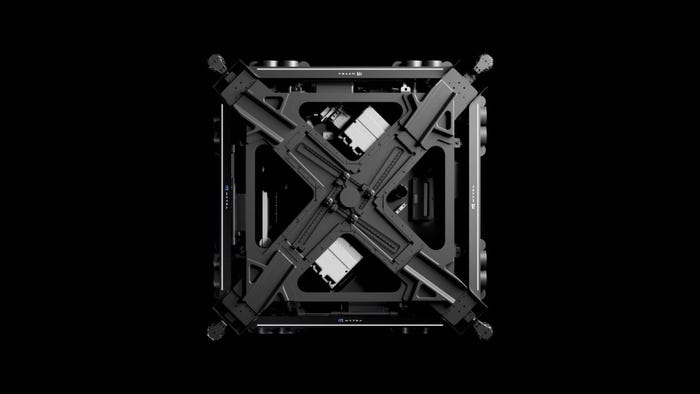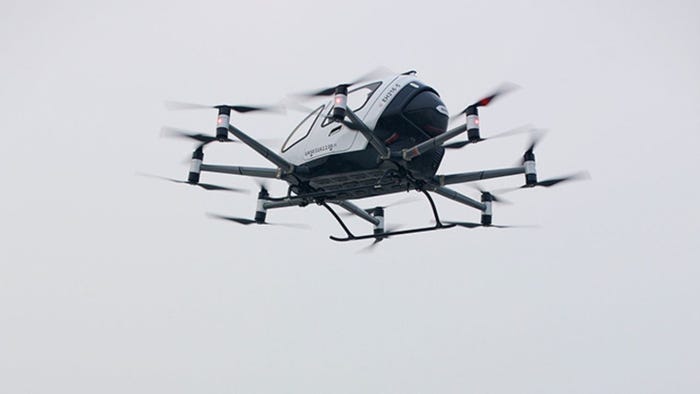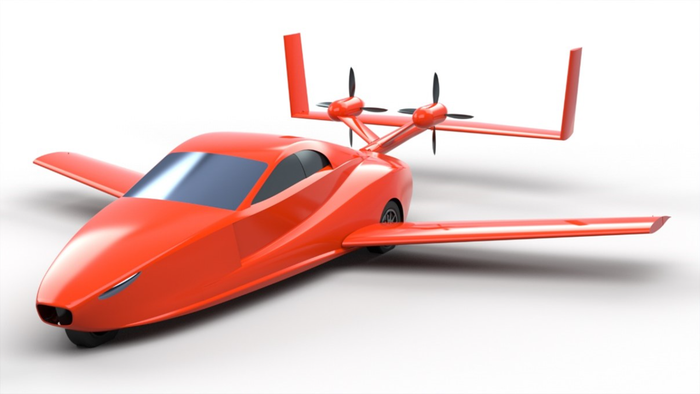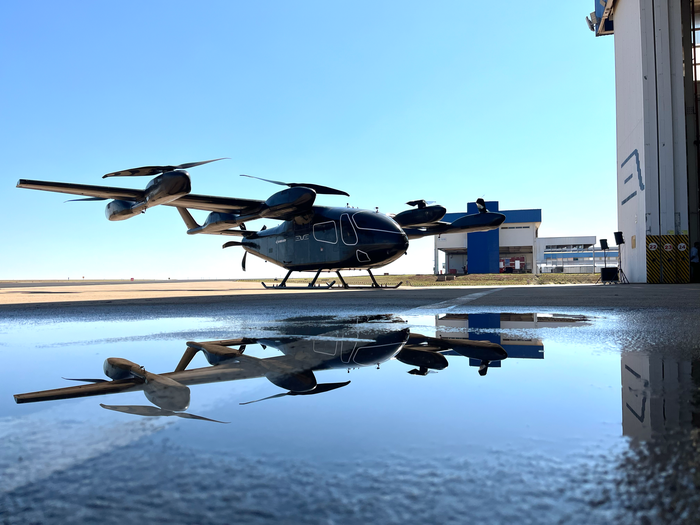Flying Taxi Company Gets EU Approval for Electric Jets
Lilium is also pursuing concurrent approval for its jet with the Federal Aviation Administration

The electric vertical takeoff and landing (eVTOL) jet company Lilium was approved to design and operate its electric jet, a process started in 2017.
The European Union Aviation Safety Agency (EASA) gave Lilium the official Design Organization Approval certifying the electric aerial vehicle (EAV) to be authorized to hold a type certificate (TC) for an EAV in Europe.
The approval qualifies the German electric jet maker to design and be a type certificate holder for aircraft developed according to EASA rules, a comprehensive set of eVTOL requirements EASA finalized in 2019.
The rules represent the highest safety objectives globally for eVTOL aircraft, according to the company.
“In many respects, today’s announcement marks a cornerstone for Lilium and evidences our market leadership in advancing the aviation industry,” said Klaus Roewe, Lilium CEO. “Achieving Design Organization Approval reflects EASA’s confidence in Lilium and differentiates us against others currently pursuing eVTOL development and regulatory approval. While we join a small, select group of companies qualified to develop commercial aircraft, today’s announcement is especially significant for the global aviation industry as we are doing so by advancing sustainable regional air mobility.”
Lilium is pursuing concurrent type-certificate validation for its jet with the Federal Aviation Administration (FAA). Lilium is among a small number of companies seeking certification of its EAVs for both the U.S. and Europe.

Lilium also recently announced deals in other countries.
It is partnering with Citic Offshore Helicopter Company (COHC) in China to provide regular EAV services in the Greater Bay area.
Lilium recently announced a partnership with other suppliers in China, including Heli-Eastern and the Bao’an District of Shenzhen municipality.
Lilium also recently announced that ArcosJet DMCC plans to purchase 10 of its electric jets and become the exclusive dealer for its private jets in the Mideast.
Deliveries of the EAVs are expected to start in 2026 with the jets delivered to customers with a maintenance program, pilot training and two charging stations.
Lilium also has signed an agreement with Denso for technical assistance in optimizing production of the Lilium jet electric engine.
Denso specializes in powertrain electrification and plans to support Lilium in developing equipment and tooling for automation for high-volume production of jet engines and subsystems.
The two companies started working together more than a year ago to develop and produce custom tires for the electric jet.
Lilium recently started assembly of its electric propulsion system on a path to manned flights in 2024.
The Lilium eVTOL craft is a jet, unlike most EAVs.
The company intends for its seven-seater vehicles to be used as a regional air mobility service, connecting cities and towns 25 to 125 miles apart at speeds of up to 185 mph.
The aircraft features forward canards (small wings near the front) along with main wings and a distributed propulsion system with fixed landing gear without hydraulics.
During takeoff, the plane would use its 36 electric ducted fans to hover for up to 25 seconds and 20 seconds during the landing phase, according to the company. Most of the flight time would be in the cruise stage with a relatively short takeoff and landing time.
The company estimates the range of the craft at 150 miles upon entry into service in 2024.
The fuselage for the Lilium jet was developed by Aciturri in Spain, with delivery to Lilium facilities in Germany.
Aciturri, also a Lilium investor, has designed and manufactured airframe components for Airbus, Boeing and Embraer.
Lilium recently secured $192 million in financing in addition to a coming public offering. It received funding from different investors including board members and Tencent Holdings, one of its initial backers.
The company, founded in 2015, has manufacturing facilities in Munich, Germany, with teams in the U.S. and Europe.
The company is not alone in the race for new air transportation services, including flying cars, personal air vehicles, both ultralights, which do not require a pilot license, and certified, which require a license.
Like what you've read? For more stories like this on flying cars and emerging technologies, sign up for our free daily email newsletter to stay updated!
Read more about:
Flying CarsAbout the Author(s)
You May Also Like








